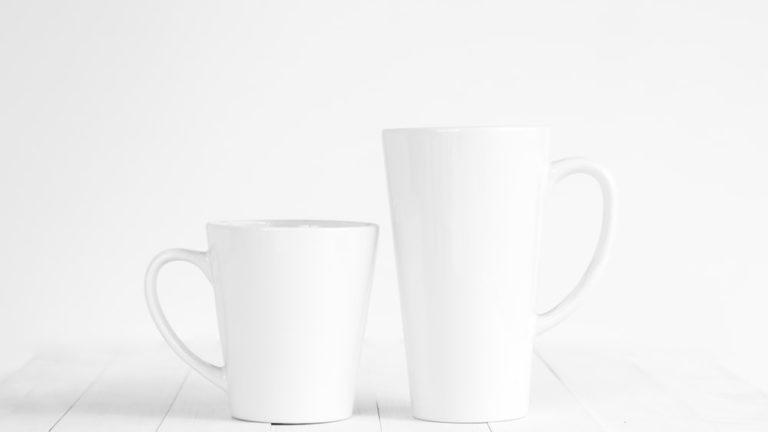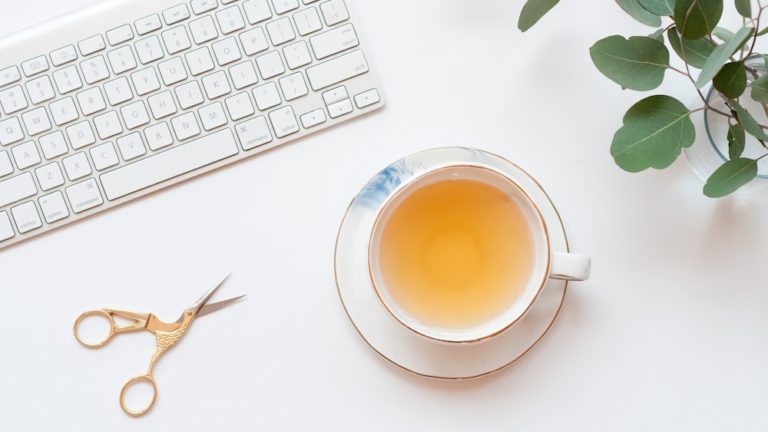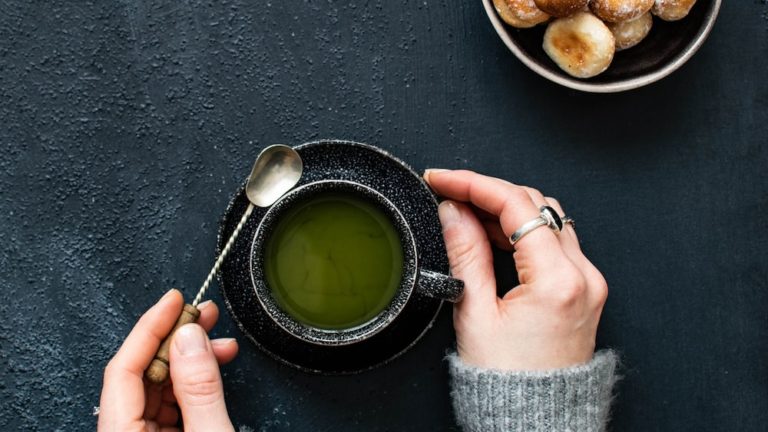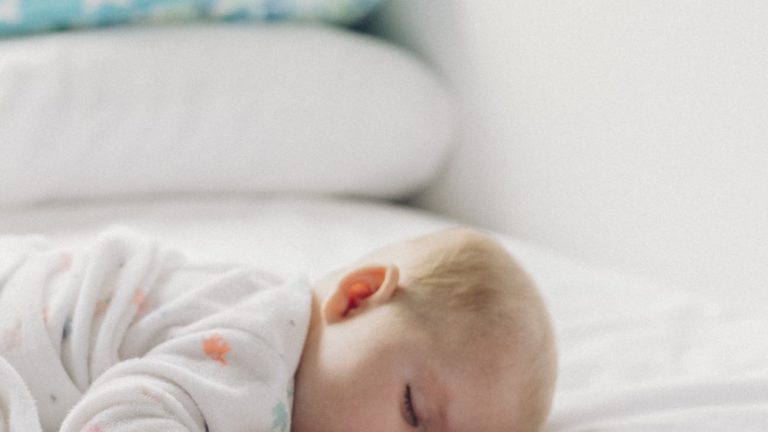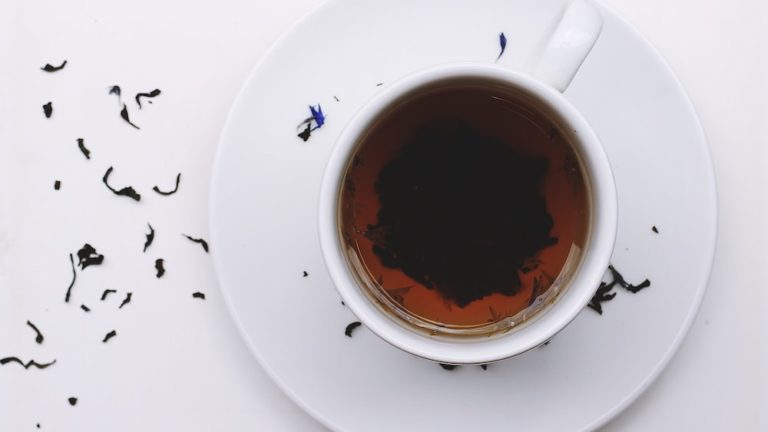Does Matcha Tea Have Caffeine? The Truth Revealed!
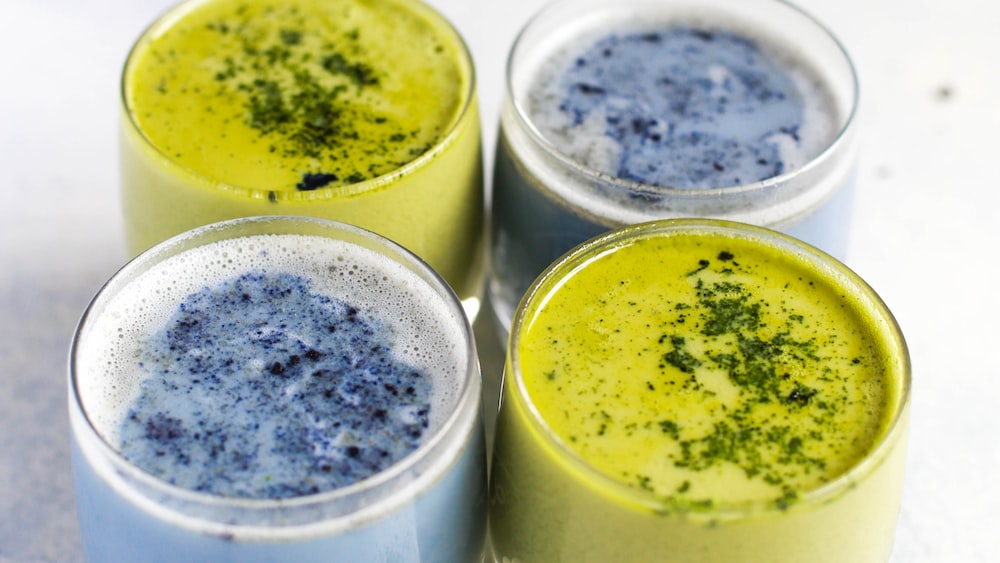
Does Matcha Tea Have Caffeine? The Truth Revealed!
Hello, dear tea enthusiasts and health-conscious individuals! Did you ever find yourself twitching your eyebrows in uncertainty as you reach for your cup of matcha tea, wondering, “Does this little green powerhouse pack a caffeine punch?” Do not fret! Many of us have been on that boat.
In today’s journey, we’ll embark on the tranquil waves of matcha tea knowledge, exploring its charismatic charm, its origin, popularity, and its oh-so-debated caffeine content. So, buckle in, or rather, steep in to solve this caffeinated conundrum with a twist of humor and a dash of irony.
Are you ready for this brew-tiful ride? Let’s dunk right in!
Understanding Matcha Tea
Understanding matcha tea is like a ceremony, a tradition of appreciating the finely powdered, vibrant green whirlwind in a teacup. But before we delve into its caffeine secrets, let’s have a little tête-à-tête about what matcha tea really is and how it magically materialized into our lives.
What is Matcha Tea?
Matcha Tea, for the uninitiated, is the Queen of Green – a concentration of green tea goodness in a refined, powdered form. Its brilliant color rivals the greenest emeralds, and its flavor, a blend of sweet and astringent notes, leaves a dance on your taste buds.
But matcha isn’t just about flavor and color – it’s a magnificent amalgamation of culture, ritual, health benefits, and of course, a subtle caffeine kick. It’s like a hidden dragon – calm on the outside, fiery on the inside!
Matcha Tea is not just about its flavor and color, but also about its cultural significance, health benefits, and subtle caffeine kick, making it a hidden dragon of goodness.
The Origin and Popularity of Matcha Tea
To understand the popularity of matcha, let’s journey back in time, all the way to the land of the rising sun, Japan. Matcha tea was the star of the traditional Japanese tea ceremony where mindfulness was brewed alongside tea in each matcha bowl. The tea master would whisk the powdered tea into a frothy delight, serving it in an atmosphere filled with respect and tranquility.
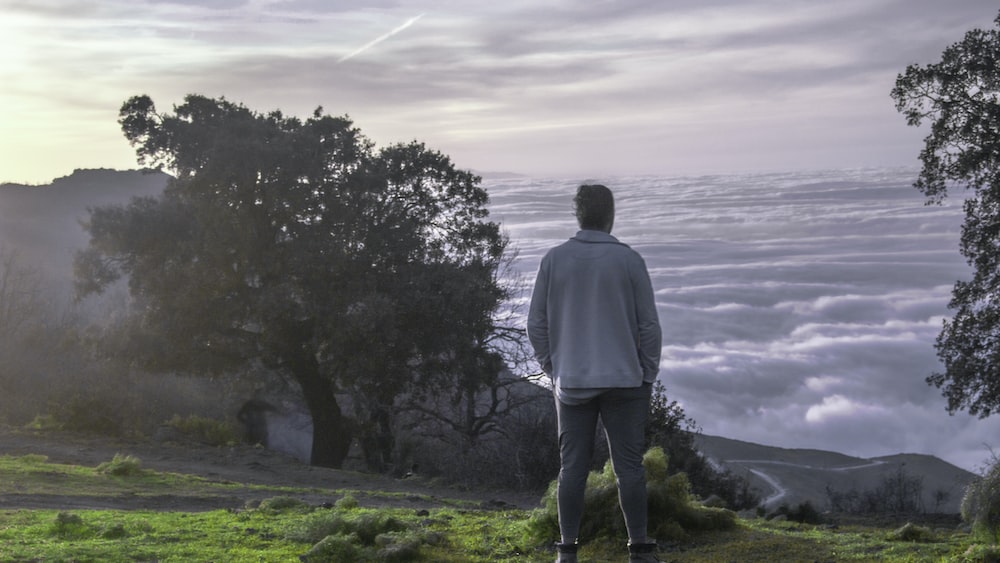
Fast forward to present, matcha has gained international fame, breaking the traditional tea boundaries. From the Instagram-worthy matcha lattes in chic tea boutiques to the exotic flavoring agent in ice creams and baked goods – matcha is not merely a trend. It’s a lifestyle choice for wellness warriors and gourmands alike.
And let’s not forget, we live in a world where we’re more turnt up on tea than tired, thanks to – drumroll, please – caffeine! Speaking of caffeine, it has stirred a bit of a storm in our tea talk. Let’s unfurl the mystique surround it.
The Caffeine Content in Matcha Tea
Ah, caffeine, the good old wake-up call of the modern world! When it comes to the caffeine content in matcha tea, there’s a lot of stove-side hearsay. But let’s sift the truths from the tittle-tattle.
Does Matcha Tea Contain Caffeine?
Driving straight to the point: Yes, matcha tea does contain caffeine. But don’t let your heart skip a beat, or let your teaspoons drop just yet! The caffeine in matcha behaves like the class clown who, against all odds, ends up being surprisingly insightful.
Its caffeine content journeys on a slower release track, thanks to the L-theanine – a magical component that harmonizes the caffeine spikes, turning them into a melodious symphony of sustained energy and focus.
Factors Influencing the Caffeine Content in Matcha
Though caffeine makes its steady appearance in every matcha tea serving, the degree to which it tips its hat can vary. Several factors come into play when it comes to the caffeine content in your cup of matcha.
First off, the type of matcha matters. Encha organic matcha, for instance, may have different caffeine content than your run-of-the-mill store-bought variety. Secondly, how you brew your tea can also twirl the caffeine wand – more tea powder or longer steeping, expect a stronger caffeine curtsey!
Comparing Matcha Tea with Other Beverages
It’s time to stir things up a bit and compare our lively friend, matcha, to its beverage counterparts. We’re about to dip our toes (or in this case, tea leaves) into the vast ocean of caffeine-infused beverages, and see how matcha stands its ground. Ready for this steep ride?
Caffeine in Matcha Tea vs. Regular Green Tea
Our first combatant in the ring is none other than matcha’s sibling, regular green tea. There’s a family feud simmering, folks! Both derived from the same plant, Camellia sinensis, they differ mainly in their cultivation and processing. Green tea leaves are typically sun-grown, plucked, and steeped in hot water. In contrast, matcha involves shading the tea plants, grinding the leaves into a fine powder, and whisking it into water or milk.
It may seem like it’s just a matter of style, but these differences substantially affect their caffeine content. According to a study published in the Food Research International journal, matcha contains up to 137 times more caffeine than low-grade green tea, and three times more than high-grade ones! So, folks, we have our winner here- matcha packs a much stronger caffeinated punch compared to its cousin, the regular green tea.
However, do not worry! This doesn’t mean you’ll be bouncing off the walls after a cup of matcha. The full-bodied, nutrient-dense leaves of matcha contain amino acids like L-theanine, which interacts with caffeine to provide a calm, focused energy without any jittery side effects. Isn’t that an interesting twist? That’s right – ironical, but true.
Matcha contains up to 137 times more caffeine than low-grade green tea, making it the winner in terms of caffeine content, but it also provides a calm, focused energy without any jittery side effects due to its amino acid content.
Caffeine in Matcha Tea vs. Coffee
Now, let’s make things steamier by pitting matcha against coffee, the reigning caffeine champion. How does our vibrant underdog matcha fare against the mighty java?
Well, you might be surprised! A typical serving of matcha contains less caffeine than coffee (approximately 70mg in matcha vs. 95mg in coffee). However, remember that caffeine in matcha is absorbed and processed differently. Thanks to L-theanine’s calming influence, the caffeine in matcha is released gradually, resulting in a longer-lasting energy boost without the sudden crash typically experienced with coffee. Quite a rebel, our matcha, wouldn’t you say?
The Effects of Caffeine in Matcha Tea
Peeling back the layers of matcha tea, we now focus on the effects of caffeine infused in it. Lovers of this verdant elixir, you’re going to appreciate matcha even more once we unravel these ins and outs.
Health Benefits of Caffeine in Matcha Tea
Embarking on the caffeine journey through matcha can lead you to meet some impressive health benefits. Wrap your minds around this, folks!
- Boosted Metabolism and Enhanced Weight Loss: Studies show that the caffeine and catechins in matcha can enhance metabolism, promoting fat oxidation and improving thermogenesis (your body’s rate of burning calories). It’s like installing a weight-loss friendly engine in your body. Quite the ride, huh?
- Mood and Cognitive Enhancement: Again, the dynamic duo of caffeine and L-theanine in matcha promotes cognition and mood. It’s like having your mood lightning up a room while your mind competes in a whirlwind chess match…win-win, right?
- Protection against Certain Diseases: Research has found that the potent antioxidant properties of matcha’s caffeine-rich leaves can protect against certain diseases, including heart disease, Type-2 diabetes, and even certain types of cancer. So while you sip on your delightful cup of matcha, rest assured it’s firing away health benefits.
Potential Side Effects of Caffeine in Matcha Tea
As much as we adore matcha for its myriad benefits, the trail of caffeine does lead to potential side effects that we better be aware of. Tea time can’t always be without a little drama, right?
Caffeine sensitivity varies from person to person, and excessive consumption of matcha may result in symptoms typical of caffeine overdose such as insomnia, Irritability, and fast heartbeat. But of course, compared to coffee, the odds of this happening are far less – yet, it’s better to have this on the radar, right?
Additionally, due to matcha’s high concentration of compounds, there’s a potential risk of lead contamination, particularly if the tea leaves are not grown and handled with care. Certainly sounds like a plot twist to our matcha story, doesn’t it?
Lastly, caffeine is known to interact with certain medications. For instance, some antibiotics might elongate caffeine’s stay in our system leading to an intensified effect. Thus, if you’re on any medication, the best would be to play it safe and consult with your doctor. It’s like navigating through a caffeinated maze that’s our human body – never a dull moment, my friends.

Frequently Asked Questions
1. How much caffeine in matcha tea?
A cup of matcha tea generally contains approximately 70 milligrams of caffeine. Keep in mind, this can vary based on how strong your brew is. It’s a bit like asking how many rainbows can you see in one day? The answer, inevitably, will be a shrug and a “depends”.
2. Is the caffeine in matcha tea different from that in coffee?
Interestingly, caffeine in matcha tea does differ from that in coffee. Although it’s the same stimulant, the presence of L-theanine in matcha slows down its release. Picture a group of caffeinated rabbits bouncing off the walls versus zen, yoga-loving rabbits. That’s the difference, my dear readers!
3. Can I consume matcha tea if I’m sensitive to caffeine?
If you’re sensitive to caffeine, consuming matcha tea might make you feel like a jittery squirrel on a sugar high. However, with its slow-release caffeine content courtesy of L-theanine, the effect is less abrasive, akin to a gentle hill slope as opposed to a roller-coaster drop.
4. Does the quality of matcha tea affect its caffeine content?
Indeed, the quality of matcha tea does influence its caffeine content. Top-shelf, ceremonial grade matcha typically contains slightly more caffeine. Think of it as the cream of the matcha crop, where the factors of growth and processing culminate into a potent punch of caffeine goodness.
Conclusion
We’ve journeyed through the zen gardens of matcha knowledge today, delving into the crux of the matcha vs. caffeine debate, much like a rabbit spelunking through a warren of facts and figures. Surely, this voyage must’ve quelled your curious neurons, right? Now, when you sip your luxurious cup of matcha, you can relish not just its invigorating taste but also the caffeine-infused wisdom that laces every drop.
Matcha tea and caffeine, friends or foes? Fret not, for now you have earned the leverage of knowledge. Destiny dares not to confound you with this quandary anymore!
Remember, dear friends, the best part of learning is sharing that knowledge. Share the newfound enlightenment – dazzle your tea-time buddies with this titillating tea trivia. After all, who could resist a stimulating intellectual conversation over a calming cup of matcha tea? Until we meet again in the next enlightening encounter, stay curious and savor every sip of life.
Warmly, Zoe

